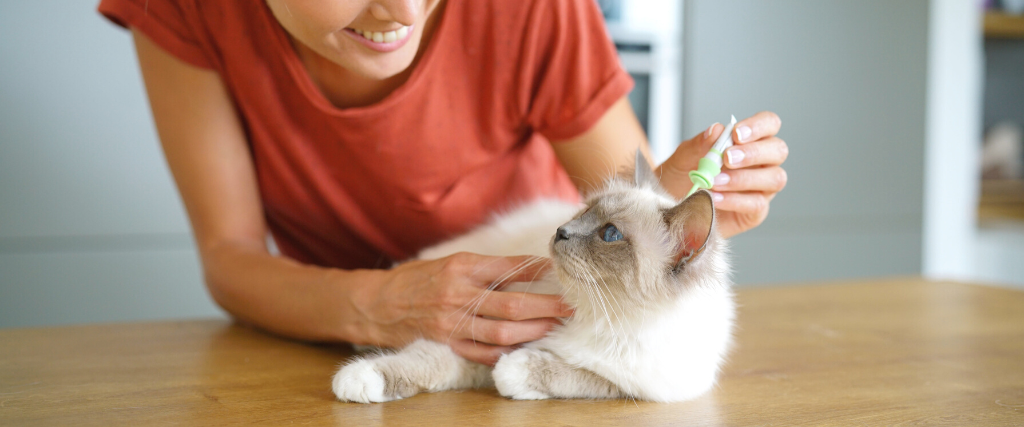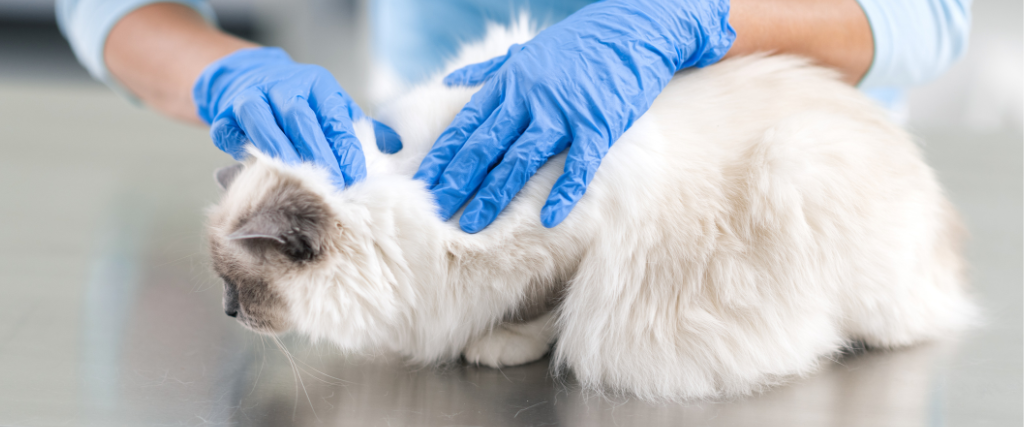As veterinarians, we understand how frustrating it can be when your cat can't stop itching. Much like in humans, allergies are a common issue among cats, and they can cause a range of uncomfortable symptoms. Let’s discuss the truth about cat allergies and what to do to help your feline friend live a healthier, happier, and itch-free life.
Understanding Cat Allergies
Cat allergies result from an overactive immune system that mistakes harmless substances for harmful ones. These substances, known as allergens, occur in various forms, such as pollen, dust, and certain foods. When a cat encounters an allergen to which they are sensitive, their immune system reacts by releasing histamines and other inflammatory mediators, which can lead to inflammation and itching.
There are several types of cat allergies, with the most common being flea allergy dermatitis and atopy. Flea allergy dermatitis occurs when a cat is allergic to flea saliva, while environmental allergens, such as pollen, dust, and mold, cause atopy. Food allergies are less common but are another potential cause of allergic reactions.
Preventing Allergies in Cats
Allergies aren’t always preventable, but you can take steps to reduce your cat's risk of developing them. Regular flea prevention is essential, as flea allergy dermatitis is a common allergy in cats. Make sure to use veterinarian-recommended flea prevention products, and regularly inspect your cat for fleas or flea dirt (flea feces).
Reducing your cat's exposure to environmental allergens can also help prevent allergies. Keep your home clean and free of mold and dust, and consider using an air purifier to filter out allergens. Avoid using scented candles, air fresheners, and other fragrances (including scented litter) that can irritate your cat's respiratory system.
Feeding your cat high-quality food that meets their nutritional needs can also help strengthen their immune system and reduce their risk of developing allergies. Avoid sharing table scraps or human food, as doing so can lead to food allergies or other health problems. Instead, opt for nutritionally balanced cat food that meets their dietary needs.

Symptoms of Cat Allergies
The symptoms of allergies in cats vary depending on the type of allergy and the reaction’s severity.
The most common symptoms of cat allergies include:
- Excessive scratching, biting, or licking of the skin
- Fur loss
- Skin infections
- Sneezing
- Coughing
- Wheezing
- Vomiting
- Diarrhea
If your cat has fleas, you may notice them scratching more than usual, particularly around the base of the tail. You might also see fleas or black specks on your cat's skin and in their fur. These specks are flea feces and indicate the presence of a flea infestation.
With environmental allergies, symptoms are often more subtle and harder to detect. Your cat may develop itchy, inflamed skin, but there may not be any noticeable signs of irritation. Cats with food allergies typically show symptoms such as vomiting, diarrhea, and flatulence.
Diagnosing Cat Allergies
Diagnosing cat allergies can be challenging, as the symptoms of allergies can be similar to other skin conditions, such as fungal and bacterial infections. For this reason, you should always leave the diagnostics to a veterinarian. When you bring your cat to us for allergy symptoms, we will typically perform a physical exam and ask questions about your cat's symptoms and medical history. We may also recommend diagnostic tests, such as blood tests or skin tests, to determine the cause of your cat's allergies.
Blood tests detect the presence of antibodies to specific allergens, while skin tests involve injecting small amounts of potential allergens into the skin to see if a reaction occurs. Skin testing is often more accurate than blood testing, but it can also be more invasive and time-consuming. Skin testing is typically only done with a veterinary dermatologist, not a general practitioner. If we suspect a food allergy, we may recommend a food trial to determine if your cat is allergic to a certain ingredient.

Treating Cat Allergies
It’s important to treat allergies promptly to alleviate your cat's discomfort and improve their quality of life. Treatment for cat allergies typically involves managing the symptoms and avoiding exposure to allergens. We treat flea allergy dermatitis with flea control products and medications to relieve itching and inflammation. Environmental allergies may require antihistamines, corticosteroids, or immunotherapy (also known as allergy shots), which involves injecting small amounts of allergens to help the immune system become less sensitive to them.
If your cat has a food allergy, we will recommend an elimination diet, where you feed your cat a hypoallergenic diet for some time to determine if their symptoms improve. If we determine that your cat has a food allergy, you will need to keep them on a special diet to avoid the allergen.
In addition to medical treatment, there are several steps to take at home to help manage your cat's allergies. Regular grooming helps remove allergens from your cat's skin and coat while also allowing you to check for signs of skin irritation or infection. Keeping your home clean and free of dust and mold can also help reduce the amount of allergens in the environment.
Seek Treatment for Your Cat’s Allergies Today
As veterinarians, we are here to help your cat live the best and healthiest life possible. It is important to recognize allergy symptoms and seek veterinary care promptly to diagnose and treat your cat's allergies properly. While allergies are incurable, many treatment options can help manage your cat's symptoms and improve their quality of life. By working with us and reducing your cat's exposure to allergens, you can help keep your feline friend healthy and comfortable. Please reach out to us today to schedule an appointment.
